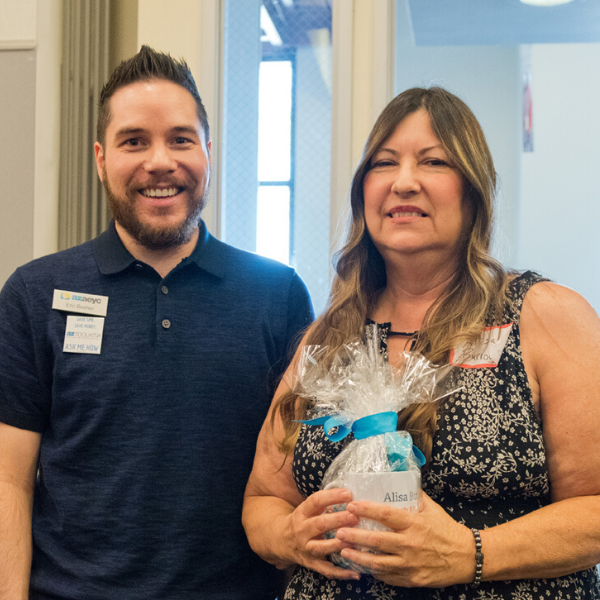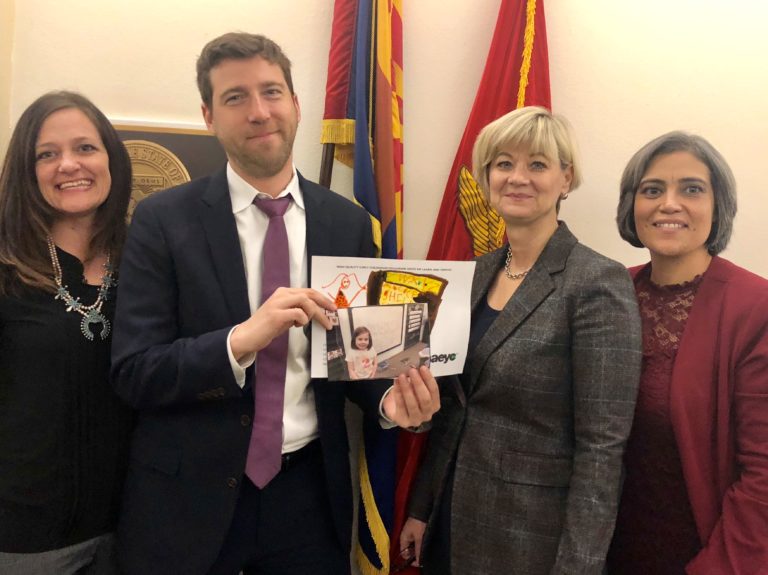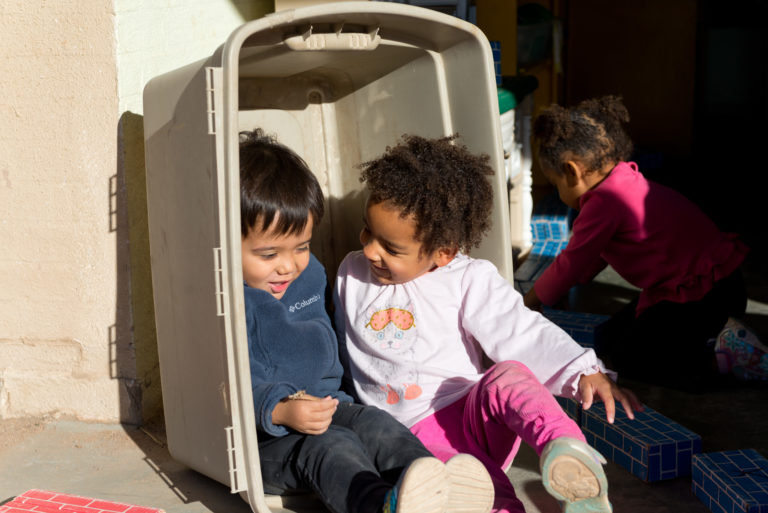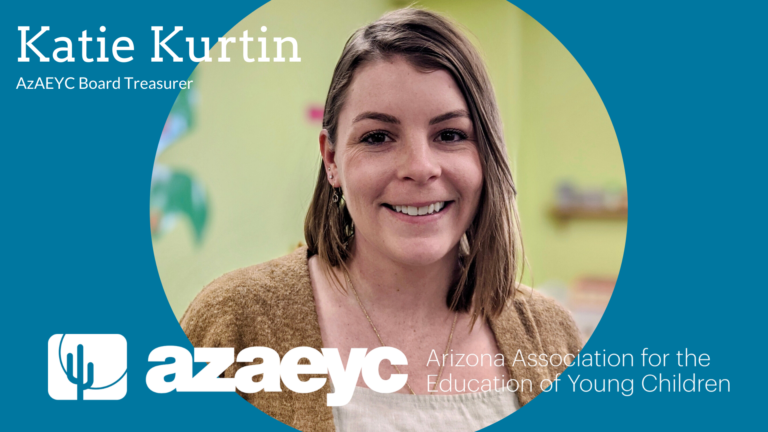November 26, 2019
Alisa Burroughs, AzAEYC Diversity & Equity Champion for 2019, is the Director of Special Services for Bullhead Elementary School District. She received this award at AzAEYC’s Annual Meeting on October 5, 2019.
Burroughs talks about her own observations around diversity and equity within the early education profession, why early personal experiences inspire her work, and how the field has changed over the span of her career.
Describe your job.
I am the Director of Special Services and Director of Special Education, including all of our preschool programs and our alternative program. Basically that covers Pre-K through 8.
And your education background?
Wow, this is a long list. I earned my Bachelors from Northern Arizona University (NAU) in Early Childhood Education and Special Education with a double emphasis in Specific Learning Disabilities and Emotional Disabilities. My first master’s degree was from NAU in Learning Disabilities and Reading Specialist.
My second master’s was from Idaho State University in Deaf Education. I went on to earn my ED.S. from Idaho State as an Educational Specialist in Deaf Education. My last educational experience was in the University of Arizona’s certification program as a Teacher of the Visually Impaired.
Why did you enter the field?
I really enjoy working with children. It started when I attended our K-8 school and they asked me if I would like to work with the little kids. I now know it was the Title 1 first graders, and no kindergartners since that wasn’t required in Arizona at the time. That was when I decided to become a teacher.
When I was in the education program at NAU in the 1970’s, my advisor asked me if I would like to change from elementary to early childhood, that it was the “wave of the future.” I said, “Sure!” — and was one of maybe ten students in the early childhood education department. I worked in the lab preschool at NAU.
What changes have you noticed over the course of your ECE career?
There is a better understanding of the importance of preschool. I was the first preschool teacher in our district and at the time, I do not think the district fully understood how much children learn before the age of five.
Talk about diversity and equity within the early education profession. What does this mean to you?
I believe every child should have an equal opportunity to access the same learning opportunities regardless of disability, economic status or ethnic background. My grandparents were naturalized citizens and I grew up hearing stories about what that meant to my mother as a first generation United States citizen who was among the poorest children in the school. I was determined as a teacher that my students would not have to endure the same experiences.
What resources have helped you most?
In my current role as Director of Special Services, I have the support of the teachers I work with. What I do could not happen without them, and their willingness to learn and accept all children into their classes. When we take parents on tours of the preschool classes, both general education and special education teachers are present to speak with the parents and tell them about our program.
All children are exposed to the same curriculum, with modifications as needed. It is imperative they have the same opportunities. We do not prejudge what they can, and cannot learn. Children with special needs are in every class right along with their typical peers.
What do you wish more people understood about diversity and equity?
We need to keep in mind that there is no special education world after school. All of these students will be together after the world of school ends. It is our job to prepare them to work and coexist with each other. It starts with our youngest learners.
What’s the most satisfying part of your work?
The ability to work with our youngest learners and make changes in their life that will change the trajectory of their life in a positive manner. I see what can occur if this does not happen. Knowing we are making a positive difference early in a child’s life is the best part of early education. My wish is that it would be available to more children.
Name the biggest challenge you face during the workday.
Time. There is never enough time to do everything you would want to do.
And the biggest challenge after the work day?
Still not enough time.
What is your favorite way to relax and process the day?
Talking with friends and colleagues.
How can AzAEYC best support educators in our state?
Continue to provide professional development opportunities at low cost.
What would you like the public to know about what you do?
It is one of the most important teaching jobs. I remember when people would say “Oh, you just teach preschool.” It is just as important, if not more important than educating our high school students. We are setting the foundation for everything to come.
Interview condensed and edited by Vicki Balint, AzAEYC Media Specialist.
The AzAEYC Diversity and Equity Champion award recognizes an individual who actively promotes diversity, respect, and inclusiveness. This individual has worked to improve opportunities for the diverse communities served, has enhanced inclusion through positive communication between persons of different backgrounds, and has made outstanding efforts to promote an environment free from bias and discrimination.




